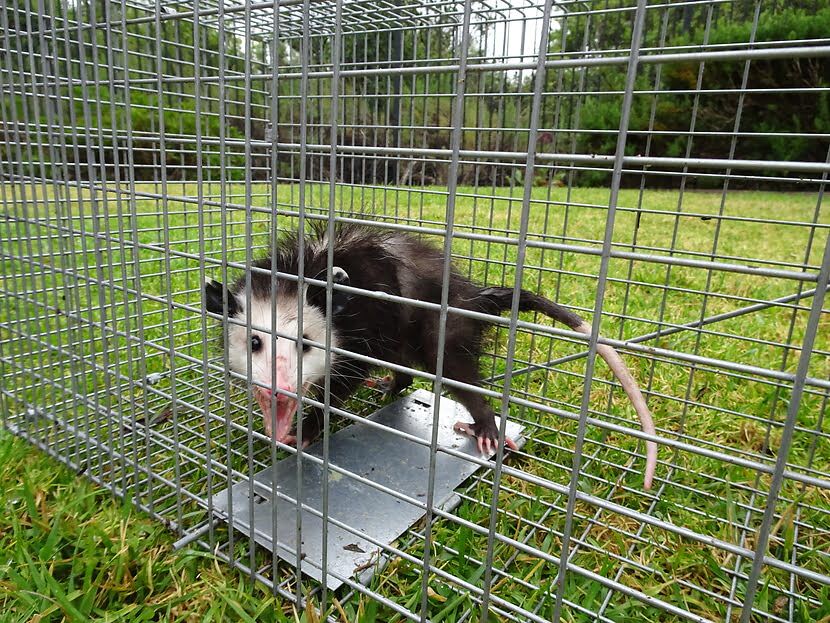
We're not going to beat around the bush here; you're going to need a lot of stuff before you even begin to think about hunting down the suspected opossum(s) in your garden or home. To start with, you'll need to actually identify the critter in question, and that sometimes means getting close enough to waste material and other items that could put you in danger of contracting a potentially deadly disease.
One of the very first things we would advise that you pick up is a breathing mask, some eye goggles, and thick, rubber gloves. These will help to prevent against any disease spores that can be inhaled, and prevents any contamination on your hands, too. The thicker the gloves, the more you will be protected from potential bites or scratches, which could, again, come with their fair share of disease threats.
Following on from that, you will need the vital tools to perform an inspection on your home, from the very top to the very bottom, inside and out. A ladder is probably going to be handy for this, and you will want a secondary person on-site to ensure that you don't put your own safety and wellbeing at risk. A torch will help for dark places, and perhaps even a head torch for those really tough, dark places. A pen and a piece of paper will come in handy for writing down the areas that you don't want to forget about repairing or reinforcing, and you may even want to have your cell phone handy to record or take photos of animal signs, damage, or other things.
It is definitely worth having cleaning equipment to hand when you perform your inspection, although you will need to clean again once you are sure that all animals have been removed from your home. The kind of things you can expect to clear up are feces and urine; staining from the grease-fur rubbing; anything the animal may have nested in, such as personal belongings, attic insulation; and even food remnants or crumbs. You will need to have strong biological enzyme cleaners to get rid of all of the biological traces, and plenty of disposal bags. You must also prepare yourself for the possibility of dead animals. It is highly advisable to have a (safe) bonfire to dispose of everything you use and became contaminated from contact with wild animal material.
Once you have established exactly what animal you have in your home, you can then choose between traps - kill traps or live cage traps. Repellents are ill advised because they do not work. There isn't a poison that you can safely or legally use for opossums. You should also get in touch with local officials to find out the correct and lawful method of opossum removal in your area. It can change from state to state or city to city, depending on the status of that animal in that area.
The removal of the animal leaves another job for you to complete - the sealing of your home. You will need strong, durable and hardy materials for this job, and you must also bear in mind that plastic, wood, and similar soft materials will be easily chewed by rats. If one animal has managed to break into your home, there's a chance that rats and mice are in there too. If the holes are left open - gaps left unsealed - further animals or the same animal could come right back.
Go back to the opossumpestcontrol.com home page.
Copyright 2021 - opossumpestcontrol.com
Nationwide Opossum Pest Control Services